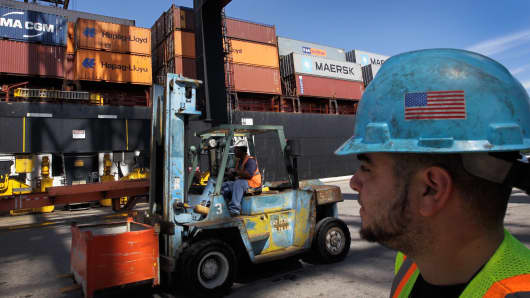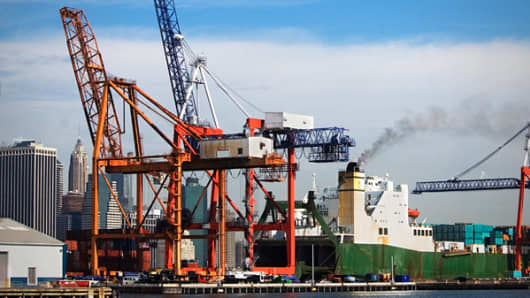First came the "Fiscal Cliff." Now, get ready for the "Container Cliff."
The threat of a longshoremen's strike that could close 15 ports from Massachusetts to Texas—including the port of New York and New Jersey—has shipping industry leaders, manufacturers and retailers warning of a "devastating blow" to the supply chain.
Like the fiscal cliff in Washington, the deadline for an agreement between the International Longshoremen's Association (ILA) and employers represented by the U.S. Marine Alliance is approaching fast—Dec. 29 to be exact.
Negotiations broke off earlier this week after management said they want to cap "container royalties," which are payments made to longshoremen based on the weight of the container cargo.
With no new talks scheduled, ,14,500 workers at the 15 ports—including the 4,000 dockworkers in New York and New Jersey—could walk off the job on Dec. 30. The last time there was an East Coast longshoremen's strike was back in 1977.
The New York-New Jersey port is the second largest port to handle manufactured goods from China and is the largest port on the East Coast.
Robert Kunkel,President of Alternative Marine Technologies and Technical Advisor for Mid Ocean Tanker Company and Alternative Capital Partners, says the East Coast ports and NY specifically are more trade restricted to Europe and South America.
"The New York and New Jersey port handles approximately 10 percent of China imports, 69 percent of Israeli imports and 37 percent of Italian imports. The products being imported from these countries are furniture, plastics, apparel, beverages and chemicals. In 2011, the New York-New Jersey ports handled $208 billion in cargo- the most on the East Coast.





